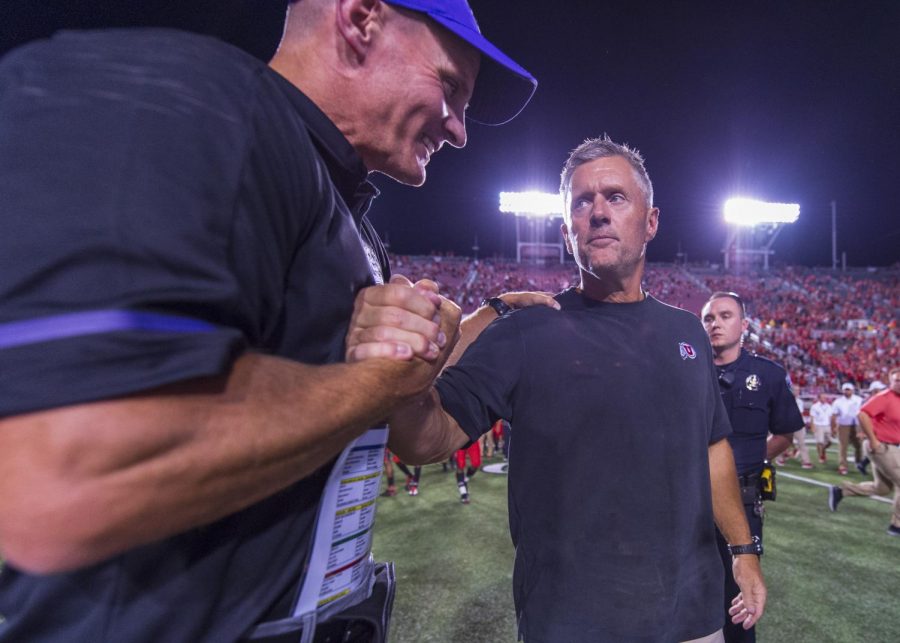Who’s the Leader? Why College Football Needs a Commissioner
University of Utah football head coach Kyle Whittingham congratulates Weber State University head coach Jay Hill following an NCAA Football game at Rice Eccles Stadium in Salt Lake City, Utah on Thursday, Aug. 30, 2018. (Photo by Kiffer Creveling | The Daily Utah Chronicle)
July 10, 2020
With the 2020 college football season looming ever closer, the future is uncertain as the COVID-19 pandemic continues to spread across the nation. While schools and athletic programs are anxious to host a regular football season, the reality of the COVID pandemic has thrown the collegiate sports world into chaos.
As the virus spreads differently throughout various regions of the country, individual conferences have responded to the pandemic in multiple ways. As conferences display their personal views on how to best move forward with the season, glaring differences in philosophy have become apparent. Because of the nature of teams playing out of conference and traveling, the lack of uniformity has complicated any plans to move forward.
These unprecedented circumstances have shed light on the real lack of uniformity across D1 college football. By learning from this moment, the time has come for college football to adopt a formal commissioner.
As the sports world has seen, the need for a formal leader has become increasingly important. The NBA, NFL and MLB each have an official commissioner. These are also the leagues that are finding ways to either resume play or planning to have as close to a regular-season as possible.
Contrastingly, college football is up in the air. While many schools have opened workouts for the past few weeks, the ability for programs to travel and play all across the country is uncertain. Each conference is acting as a separate entity, rather than a sect of a larger organization. This factional mode of operating has caused conferences to declare they will not play certain opponents, due to their conference’s lack of COVID handling.
With a commissioner, the conferences would no longer be able to operate as they see fit. There would be a figurehead that would dictate how college football will operate and what is expected across the board.
This would also allow the collegiate football world to continue to grow and expand. As we have seen with examples such as Adam Silver, a dedicated commissioner can significantly expand a sport’s fanbase and influence.
While it may not be immediate, the college football world needs to organize itself as though it is the NFL or NBA. At the end of the day, collegiate sports are a lucrative business and an entertainment industry. Should schools want to receive their money and allow fans to view their favorite team, a commissioner is needed to keep the sport moving forward.








Todd Feld • Jul 17, 2020 at 9:07 pm
Well spoken my man Carlos…